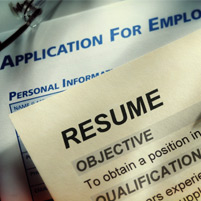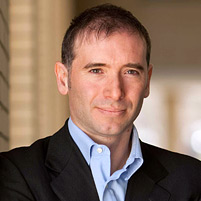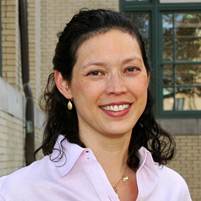Too Much Information


Alessandro Acquisti

Christina Fong
A little mystique may go a long way when it comes to landing a job.
Carnegie Mellon University researchers have found evidence that sharing too much personal information via social networks can lead to hiring discrimination.
Alessandro Acquisti, associate professor of information technology and public policy at CMU's H. John Heinz III College, and Christina Fong, senior research scientist at CMU's Dietrich College of Humanities and Social Sciences, tested the impact that information posted on a popular social networking site by job candidates can have on employers' hiring behavior.
"Employers' use of online social networking sites to research job candidates raises a variety of notable implications, since a vast number of job candidates reveal personal information on these sites that U.S. employers can't ask in an interview or infer from a resume," Acquisti said.
In the United States, employers cannot discriminate based on race, color, religion, sex, national origin, disability, genetic information or age. So while an employer may not ask personal questions about those topics in an interview, they might be able to find it publicly available online on social media sites.
Surveys have suggested that employers have been using the Web to screen prospective job candidates, but there have been no controlled experiments measuring the frequency of companies using online profiles in hiring decisions and how profile information actually affects those decisions.
"While it appears a relatively small portion of U.S. employers regularly searches for candidates online, we found robust evidence of discrimination among certain types of employers," Fong said.
The researchers used data revealed online by actual members of popular social networking and job-seeking sites to design job candidate resumes and online profiles for their experiments.
The researchers first used a survey experiment involving more than 1,000 online participants to capture reactions to the candidates' resumes and online profiles, and to test whether or not the candidates' profiles appeared realistic.
In the field experiment, Acquisti and Fong submitted applications on behalf of the candidates to real job openings at more than 4,000 U.S. employers. They collected data that helped them to get a sense of how many employers searched for job candidates online. The researchers measured the number of interview opportunities a Christian candidate received relative to a Muslim candidate, and the number of interview opportunities a gay candidate received relative to a straight candidate
They also collected data on the states and counties in which jobs were located and on the firms that listed the openings.
"Our survey and field experiments show statistically significant evidence of hiring bias originating from information candidates shared on their online profiles," Fong said.
Acquisti and Fong detected less bias based on the sexual orientation of the candidates. Interview rates for the gay candidates were similar to those for the straight candidates.
The findings suggest that, while hiring discrimination via Internet searches and social media does not seem widespread, the impact of revealing certain traits online can have a significant effect on the behavior of employers who look online for candidates' personal information.
Related Links: Heinz College | Dietrich College
